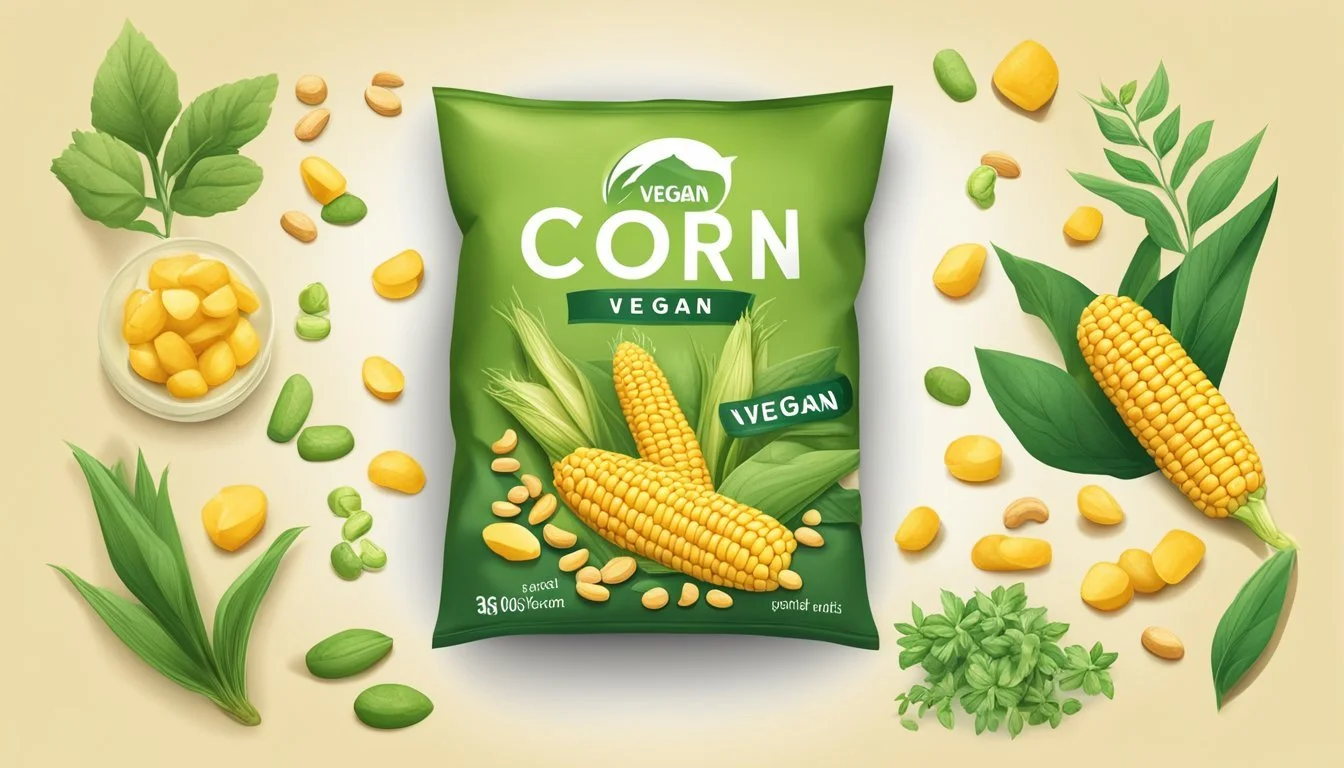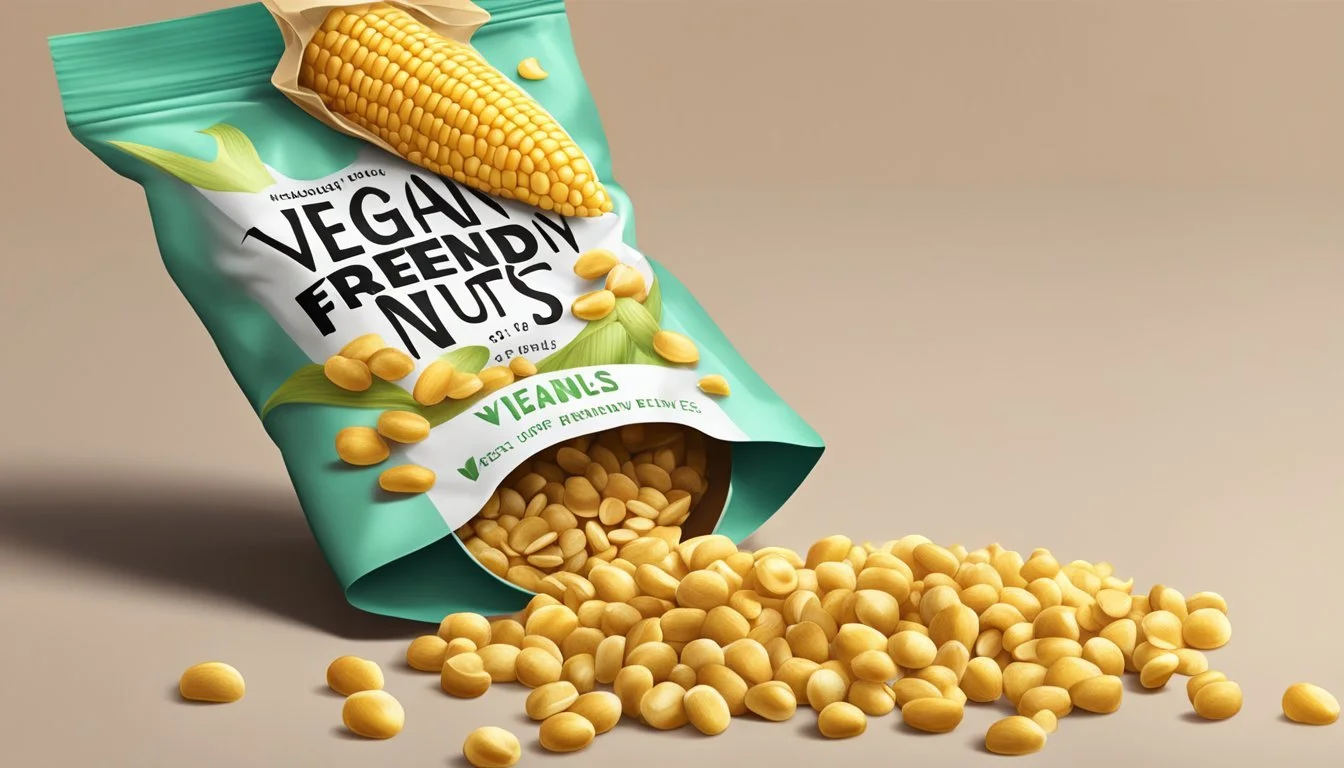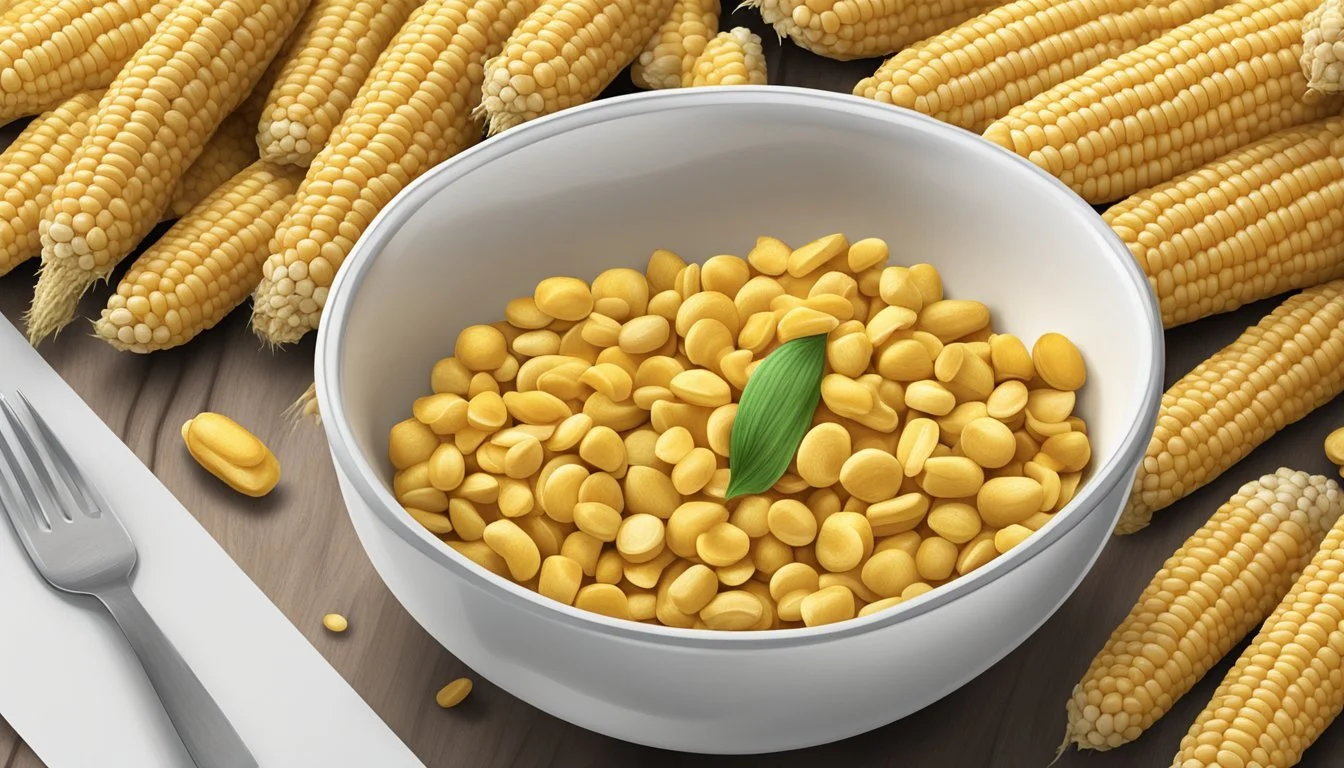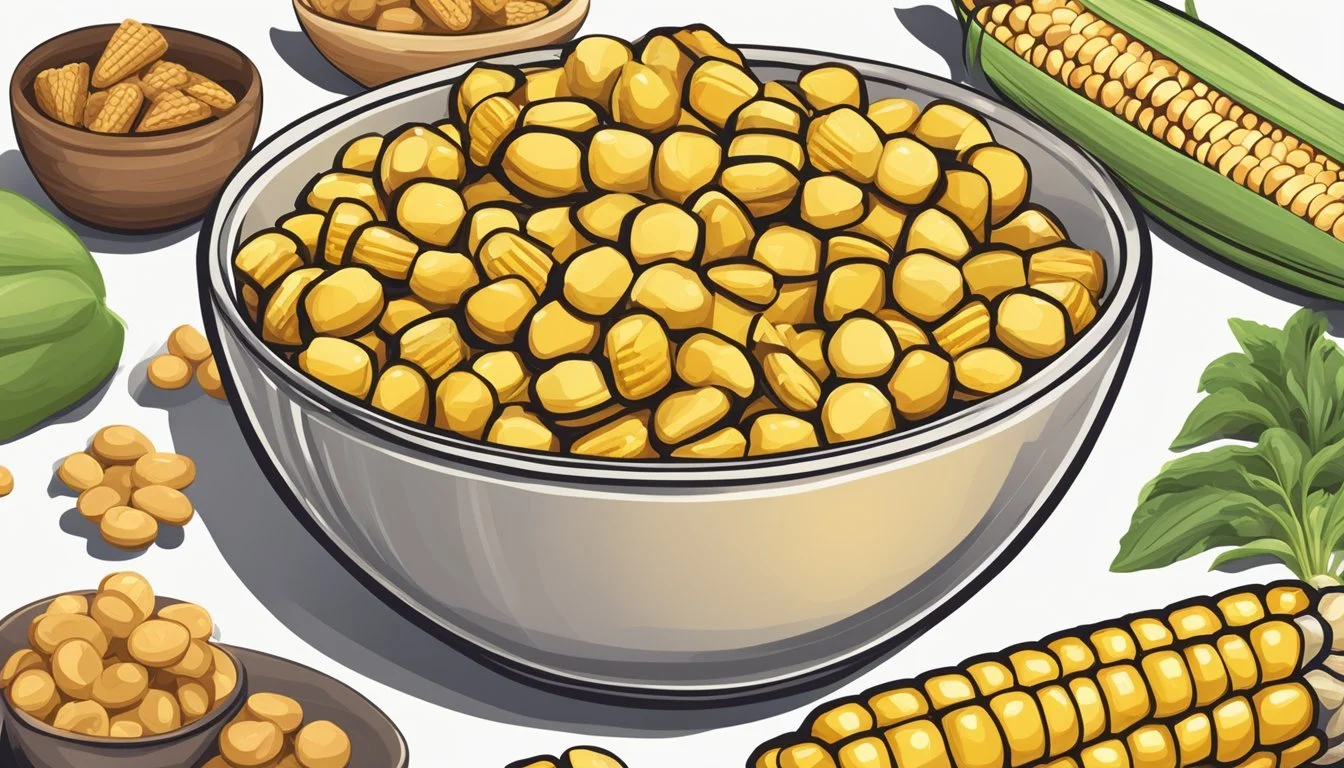Are Corn Nuts Vegan?
Unveiling the Snack's Dietary Profile
Corn nuts, (What wine goes well with nuts?) the popular snack known for its crunchy texture, are a product made from roasted corn kernels. They have garnered attention from the vegan community due to their simple base ingredients, which typically include just corn, oil, and salt. This simplicity naturally raises the question of whether they are compatible with a vegan diet, which excludes all forms of animal exploitation and cruelty.
The answer to this is largely affirmative. Original corn nuts, with their basic composition, do not contain animal products and thus fit into a vegan lifestyle. However, as with many processed foods, it is important for consumers to be mindful of different flavors and variations of corn nuts. While the base product is vegan, additional flavors may incorporate ingredients that are not vegan-friendly.
What Are Corn Nuts?
Corn Nuts are a crunchy snack food made from whole corn kernels that have been roasted or deep-fried. They are known for their hard texture and are typically seasoned with salt and various flavorings.
Origins and History
Corn Nuts were developed in the United States by Albert Holloway in the 1930s. Holloway originally named them "Olin's Brown Jug Toasted Corn," which he sold as a tavern snack. The name was later changed to "CornNuts" in 1949, with the creation of the Corn Nuts, Inc. company, capitalizing on the growing popularity of this distinctive snack.
Corn Nuts as a Snack Food
Traditionally consumed as a snack food, Corn Nuts are appreciated for their crunchy texture and flavor variety. They are commonly found in grocery and convenience stores and have a loyal following among those seeking a savory, portable snack.
Production Process
Corn Nuts are made using a specific variety of large-kernelled corn, known as Cuzco. The process involves soaking the whole corn kernels to allow them to hydrate, then roasting or deep-frying them until they become crisp. Afterward, they are seasoned with salt and may include other spices and flavorings depending on the variety.
Vegan Diet Fundamentals
This section covers the core concepts of a vegan diet, focusing on the principles of veganism and the avoidance of animal-derived ingredients.
Defining Veganism
Veganism is a dietary and lifestyle choice in which an individual refrains from consuming or using any animal products. Those who adopt a vegan lifestyle opt for plant-based alternatives to promote animal welfare and reduce their environmental impact. Vegan-friendly foods include fruits, vegetables, legumes, grains, nuts, and seeds, as well as products explicitly developed to not contain ingredients of animal origin.
Common Animal-Derived Ingredients
Individuals following a vegan diet must be vigilant about the ingredients in their food, as numerous products may contain less obvious animal-derived components. Here is a list of common animal-based ingredients to avoid:
Gelatin (from animal collagen)
Casein (a milk protein)
Lactose (milk sugar)
Carmine (red color from crushed insects)
Whey (residue from milk)
Spotting these ingredients is critical for maintaining a strict vegan diet, ensuring that one's food choices align with the ethical and health-related motivations behind veganism.
Analyzing Corn Nuts Ingredients
Corn Nuts boast a straightforward composition, making them a potential snack option for vegans. This section dives into the specifics of their ingredients.
Original Corn Nuts Ingredients
The main ingredients in Original Corn Nuts include corn, salt, and corn oil. This simple trio is responsible for the classic crunch and taste of the snack:
Corn: A plant-based food, high in carbohydrates.
Salt: Used for seasoning.
Oil: Typically corn oil, which is extracted from corn kernels and is plant-derived.
Additional Flavors and Variants
Aside from the original flavor, Corn Nuts come in various flavors that incorporate additional seasonings and flavors. Each variant could contain different combinations of spices, sugar, water, and flavorings like ranch or BBQ. Flavored Corn Nuts also might include:
Dairy: Present in certain flavored varieties.
Additives: Specific to each flavor profile.
Non-Vegan Ingredients to Watch For
While the original Corn Nuts are largely vegan-friendly, some flavored varieties may contain non-vegan ingredients. Vegans should be vigilant about:
Dairy: Sometimes found in creamy or cheesy flavors.
Seasonings: May occasionally have hidden non-vegan additions.
Additives: Always examine for any animal-derived components.
It's also worth mentioning that Corn Nuts are generally gluten-free, appealing to those with gluten intolerances or preferences as well as those following a plant-based diet.
Corn Nuts and Veganism
In assessing whether Corn Nuts are compatible with a vegan lifestyle, it is essential to consider individual flavors and their ingredients. This section examines the vegan status of Original Corn Nuts and other flavors while highlighting common vegan concerns.
Are Original Corn Nuts Vegan?
Original Corn Nuts are indeed vegan-friendly. Their ingredient list typically consists of just corn, corn oil, and salt. These items are all plant-based and free from animal-derived products, making them adequate for vegan consumption.
Vegan-Friendly Corn Nuts Flavors
Most plain or lightly salted Corn Nuts flavors are safe for vegans. These varieties generally avoid non-vegan ingredients, adhering to a simple composition of corn kernels, oil, and salt. However, it's prudent for vegans to inspect the labels for added flavorings or natural flavors, which can occasionally contain hidden animal byproducts.
Potential Vegan Concerns
While Original and several other flavors of Corn Nuts are vegan, some concerns may arise around certain flavored varieties which could include non-vegan additives. Dairy derivatives are a common non-vegan ingredient in some snack flavorings. Vegans should be vigilant about checking ingredient lists for non-vegan items, particularly in processed foods. Additionally, some vegans might prefer to avoid products with excessive additives and preservatives, even if those additives are not sourced from animals.
Nutritional Profile of Corn Nuts
Corn nuts, a crunchy snack made from whole corn kernels, have a distinct nutritional profile consisting of macronutrients, vitamins, minerals, and calories. They stand out as both a source of energy and essential nutrients when consumed in moderation.
Macronutrients and Calories
Corn nuts contain a balance of macronutrients. A serving of 28 grams (approximately 1 ounce) typically consists of:
Calories: 120-130
Protein: 2 grams
Fat: 4-5 grams
Carbohydrates: 20 grams
Fiber: 2 grams
Sodium: Varies by brand; some options can have over 200mg
Corn nuts provide a moderate amount of protein and fiber and are relatively higher in carbohydrates. Their crunchy texture and rich flavor often come from the roasting process and added salt.
Vitamins and Minerals
These snacks contribute the following vitamins and minerals:
Magnesium: More than 10% of the daily value (DV)
Phosphorus: More than 10% of the DV
Selenium: More than 10% of the DV
Vitamin B2: More than 5% of the DV
Vitamin B3: More than 5% of the DV
Copper: More than 5% of the DV
Iron: More than 5% of the DV
Zinc: More than 5% of the DV
Comparative Snack Analysis
Comparing corn nuts to other snacks, they are denser in vitamins and minerals than many processed options. However, the relatively high sodium content and presence of fats can impact their positioning as a 'healthy snack'. It's important for consumers to consider portion sizes and how corn nuts fit within their overall dietary patterns.
Alternative Vegan Snacks
When seeking plant-based munchies, vegans have a plethora of delicious and nutritious options beyond the classic Corn Nuts. The following snacks not only satisfy the crunch factor but also adhere to vegan standards.
Roasted Chickpeas
Roasted chickpeas are a hearty, protein-packed snack that can be enjoyed in numerous flavors. They are made by seasoning and baking chickpeas until crisp. Key Nutrients: protein, fiber.
Vegetable Chips
Vegetable chips offer a rainbow of nutrients and are an excellent plant-based alternative to traditional potato chips. They can be made from a variety of vegetables such as sweet potatoes, beets, and kale.
Popular Varieties:
Sweet Potato Chips
Beet Chips
Nutritional Yeast Seasoned Snacks
Snacks seasoned with nutritional yeast provide a cheesy flavor without any dairy. This ingredient is popular for adding a savory, umami taste to popcorn, nuts, and homemade chips. Why It's Loved: rich in B-vitamins, umami flavor.
Consumer Information
When it comes to assessing whether Corn Nuts are vegan, consumers are encouraged to become adept at scrutinizing product labels and understanding certifications related to plant-based diets. While many Corn Nuts brands claim their products are vegan, verification through label analysis is essential.
Label Reading and Ingredient Lists
Consumers should start by examining the ingredient list on Corn Nuts packaging. Plain Corn Nuts typically include corn kernels, oil, and salt—all of which are vegan-friendly. However, caution is advised since some flavors may incorporate non-vegan items such as milk powder, honey, or animal-derived flavorings. It's crucial to always check for:
Dairy products (e.g., whey, casein)
Sweeteners (e.g., honey)
Added flavorings with animal origins
Ingredients are listed in order of descending quantity, so those appearing first make up a larger portion of the product.
Vegan Certifications and Claims
The market offers various certifications that can help consumers identify vegan-friendly options. Some products may showcase labels like:
Vegan Society Trademark
Certified Vegan by Vegan Action
These symbols indicate the product has been assessed and approved by a reputable organization that verifies it does not contain any animal-derived ingredients nor is it tested on animals.
Contacting Manufacturers
For additional clarity, consumers have the option to directly contact manufacturers. Companies are usually receptive to inquiries about their products and can provide information on:
The vegan status of obscure ingredients
Cross-contamination risks during production
Any upcoming changes to formulations that might affect the vegan-friendliness of the product
By engaging with brands, consumers can also influence the demand for more transparent labeling and vegan options in the market.
Environmental and Ethical Considerations
When evaluating Corn Nuts' suitability for a vegan diet, it's important to consider the snack's broader environmental and ethical impact, specifically in terms of corn production, the sustainability of veganism, and the implications of our snack choices.
Impact of Corn Production
Corn, the primary ingredient in Corn Nuts, has a significant environmental footprint. The cultivation of corn requires substantial land and can lead to biodiversity loss. It also often involves the use of pesticides and fertilizers, which can contribute to soil and water pollution.
Veganism and Environmental Sustainability
Adopting a vegan diet often reflects a commitment to reduce one's environmental impact. Plant-based diets require less water, energy, and land compared to diets high in animal products, making them more sustainable in the long run. Vegan snacks such as Corn Nuts, if produced responsibly, align with these sustainability goals by minimizing animal suffering and reducing resource use.
Ethical Implications of Snack Choices
Ethical choices around food often go beyond personal health and have broader implications. By choosing plant-based options like Corn Nuts, consumers can support a shift towards more ethical consumption patterns. This includes considering labor practices involved in production and opting for products that have minimal harm to animals and the environment.








